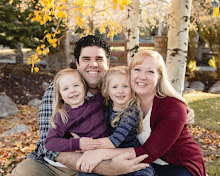 My Home Tree was an accidental find. I wasn't looking for a place to settle and put down roots; I just wanted to take a pretty picture. I am forever looking for that "perfect" photo opportunity--a walk lined with trees, blue sky through vibrantly red and orange leaves, untouched snow molding itself into drifts and contours, clouds shot through with the gold and pink of sunrise. Stourhead Gardens in England (where part of the 2005 movie version of Pride and Prejudice was filmed) was one gigantic photo op. As I discovered in learning more about the history of Stourhead, the garden was actually designed to be full of breathtaking, picturesque, inspiring panoramic views. It was one of the first of many English estate gardens that were created to look wild and natural, while actually being carefully and purposely crafted. It was an odd juxtaposition of human interference and natural world.
My Home Tree was an accidental find. I wasn't looking for a place to settle and put down roots; I just wanted to take a pretty picture. I am forever looking for that "perfect" photo opportunity--a walk lined with trees, blue sky through vibrantly red and orange leaves, untouched snow molding itself into drifts and contours, clouds shot through with the gold and pink of sunrise. Stourhead Gardens in England (where part of the 2005 movie version of Pride and Prejudice was filmed) was one gigantic photo op. As I discovered in learning more about the history of Stourhead, the garden was actually designed to be full of breathtaking, picturesque, inspiring panoramic views. It was one of the first of many English estate gardens that were created to look wild and natural, while actually being carefully and purposely crafted. It was an odd juxtaposition of human interference and natural world.Regardless of how it came to be, it was beautiful from every angle. I relished my stroll around the lake, taking dozens of pictures of the early morning sunlight on the water, of the rhododendron's fuschia and violet and magenta flowers, of the perfectly still back pond reflecting vivid blues and greens and dotted with lilypads. The garden infused me with a little of its calm and stillness. I was grateful, because that was not what I felt on the inside.
The day before, I had had a chance to check my email and found an email from my dad. The surgery from six weeks before hadn't caught all the cancer; there would be more drugs and probably some radiation treatment in the near future. I was glad to be kept updated, but I was on the other side of the world from my family. I didn't know when I'd be able to check my email next, or when I could call them. There was absolutely nothing I could do to help. Even if I were home, there wouldn't have been much I could do anyway, but being so physically separated from my family highlighted my helplessness.
As I reached the far end of the lake, I looked across the water at the Temple of Apollo situated on a hill and surrounded by trees. It was stunning--as I'm sure the garden's architect meant for it to be--and looked so very sturdy and settled. That was how I liked my life to be, and it was. I had my family as a support system, I had my religion to structure our lives. My father's continuing cancer felt like a break down of not only my family's solid relationships, but it felt like a betrayal of what we believed in as well. I had always been taught and believed that if I did everything I could do, and then prayed in faith, everything would work out and be taken care of. This felt like the opposite of that. I could see the Temple of Apollo reflected in the lake, the glassy surface broken by only a few ripples that managed to distort the whole image.
I continued my sojourn around the lake, thinking, feeling, pausing to take pictures every few steps, until I reached a part of the path shaded by a tall tree. There were tall green bushes with purple flowers--more rhodondendrons?--that bordered the lake. The early morning sun slanted through the leaves and branches to stripe the tree's trunk and roots with gold. It seemed sheltered somehow, and I stopped walking altogether, recognizing a beautiful picture. I snapped a few photos of the scene, then set the timer on my little digital camera and perched it on some rocks across the path and ran to get in the picture.
As soon as I settled my back into the curve of the tree trunk, leaned my head onto the mossy bark, and found natural bends in the roots for my feet, I felt something slide away from me. A release of weight, a lifting of fear. I smiled at my flashing camera, but didn't get up. I was not just comfortable, I was at ease, at rest. Somehow, the tree had absorbed my anxiety, my displacement, my doubt. Not only had something slid away from me, but I had slipped into place--my place. It was the center of the universe, the eye of the storm, my safe harbor, my refuge. The tree asked nothing of me, only that I sit and be myself. It was home in the truest sense of the word.



